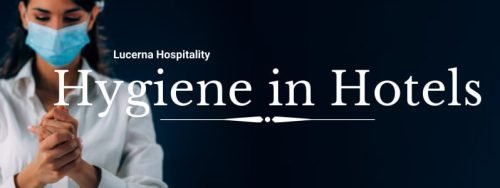
Tourism and hospitality sector has taken a hard blow from the widespread effects of the COVID-19 pandemic, perhaps more than others. Even with the government’s best attempts to cushion the hospitality sector, hotels have encountered huge losses due to the low influx of guests, both local and international. As an industry that contributes 5% of the national GDP and 10% of employment opportunities according to UK hospitality report, this sector’s importance cannot be overstated.
With regulations that allow the re-opening of hotels, hoteliers are trying to rally their businesses to their once extremely profitable state. Hotels have taken their responsibility to clients and staff seriously and have put stringent measures to ensure protection against COVID to all who access their premises. The unprecedented nature of the crisis has caused many hoteliers to come up with creative and innovative ways to get their businesses up and running without sacrificing hotel safety and security standards that could endanger guests or staff.
To meet their obligations to the safety of both clients and staff, hotels have formulated and adapted measures and guidelines depending on their businesses’ nature, including the size and type, and management of individual facilities. Here is an overview of the different security and safety measures in hotels that have been set in place.
Hotel cleaning of all surfaces, especially those with more human contact such as door handles, reception desks, and elevators, is crucial in preventing transmission of the virus by touching contaminated surfaces.
Here are the steps that have been taken to ensure that this is done efficiently.
Handwashing, sanitizing, and clean sanitation facilities are critical to preventing the spread of the COVID-19 virus. Hotels are ensuring that proper hygiene is kept round the clock by:
PPEs and face coverings, protect the user by limiting the travel distance of any expiratory droplets that can spread the disease. They are essential in reducing the spread of the disease by pre-symptomatic individuals and work well to complement other measures.
These are the hotel regulations regarding PPEs and face coverings:
Physical distancing measures are intended to slow and prevent the spread of the disease by minimizing close contact between individuals. Hotels are putting social distancing measures into effect by:
Safety and security in the hotel industry are among the top priorities for hoteliers as they try to make potential clients comfortable and secure enough to visit their premises. They have achieved this by:
Every cloud does indeed have a silver lining, and for the hotel industry, it has been the forceful shove to embrace technology in their day-to-day operations fully. Flexibility has been one of the most critical aspects for guests looking for hotel services during this unusual time.
Guests want the convenience of handling every tiny detail, over their computers from the comfort and safety of their homes. Likewise, hoteliers have had to deal with almost all operations online in this era of extreme physical and social distancing. Activities like ordering Personal Protective Equipment and cleaning equipment and liquids have shifted to online selling platforms to guarantee tourism safety and security entirely.
The hotel industry has undoubtedly shown the resilience and quick adaptation needed to survive and even thrive in the ‘new normal.’ It is clearly keeping the words of one Stephen Hawking to heart, “Intelligence is the ability to adapt to change.”
Discover excellence in hospitality with Lucerna Hospitality. We pride ourselves in being your one-stop-shop for high-quality items spanning across diverse necessities, from luxury hotels to comfortable homes.
Need the perfect pool towels that blend durability with softness? Or perhaps searching for bed linens that cradle your guests into a dream-filled sleep? Whether you’re in pursuit of the finest cutlery that adds a touch of elegance to your dining or resilient melamine dinnerware for exquisite outdoor dining experiences, we cater to your every requirement!
Why limit luxury to external venues? Create your very own sanctuary at home with our range of bath amenities and plush towels.
Make every meal an occasion with our splendid array of tableware, glassware, table linen, hostpacks, and buffet accessories.
Transform your kitchen with our selection of top-tier pots & pans. For those who desire an orderly and well-managed household, our room and housekeeping items are ideal for maintaining a spotless environment.
Welcome to our expansive hub for hospitality procurement, where a diverse array of premium supplies awaits your discovery. Tailored for hotels, restaurants, hospitals, and rental apartments, our offerings include sophisticated tableware, glassware, opulent bath amenities, plush towels, exquisite bedding sets, and more.
Our comprehensive selection ensures that your establishment is fully equipped to meet every need. Discover the convenience of sourcing with us to elevate your hospitality experience. Partner with us for an unparalleled selection, making procurement a seamless and enriching journey for your business.